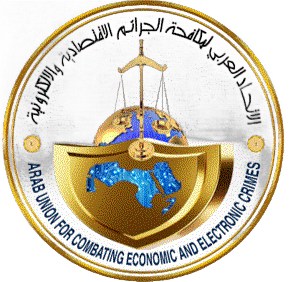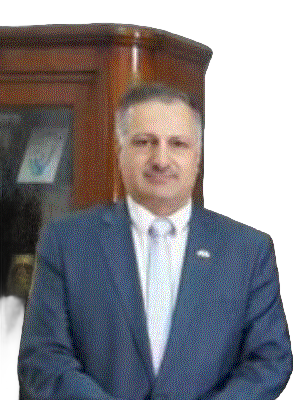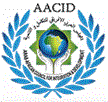Examples of Supporting Welfare Funds in Advance Using Projected Returns Through Platforms

Innovative financial models using projected returns to address economic challenges and ensure sustainable welfare funding.
Introduction by Ambassador Imad Tariq Al-Janabi


Distinguished attendees,
I am Ambassador Imad Tariq Al-Janabi, representing the Arab African Council for Integration and Development (AACID), an organization that has been actively working toward sustainable economic and social development across Arab and African nations. AACID holds Special Consultative Status with the United Nations ECOSOC and has collaborated with international partners to bridge the economic and development gap between Arab and African countries.
Since our formal collaboration with the ISEA Foundation in 2018, we have recognized the necessity of innovative financial models to address economic challenges. Our efforts align with the ISEA Foundation's MobiDollar Project, which integrates blockchain-based financial solutions into development initiatives. Today, I am honored to present a model that utilizes projected returns through platforms to support welfare funds in advance, ensuring financial sustainability for social development programs.
ISEA Foundation's MobiDollar Project
1
2018 UN Conference
ISEA Foundation introduced the concept of utilizing MobiCoins Wallets as a technical solution.
2
2019 COVID-19 Pandemic
The foundation successfully facilitated the distribution of hundreds of essential goods through its platform. 200 institutions were provided with 100 MobiDollars each to enable beneficiaries to access aid.
3
Challenges
As this system relied on the Ethereum blockchain, high transaction fees made practical implementation challenging.
4
Future Potential
With increased collaboration between governments and financial institutions, this model can bring significant benefits not only to Arab and African nations but to the entire world.
Challenges in Traditional Welfare Funding
1
Unstable national budgets
Leading to inconsistent social welfare support.
2
Delayed funding disbursements
Affecting urgent humanitarian aid.
3
Dependency on external aid
Making welfare programs vulnerable to geopolitical and economic fluctuations.
To mitigate these challenges, an alternative financing model leveraging blockchain technology and projected economic returns is necessary.
Using Blockchain Platforms to Support Welfare Funds in Advance
Tokenization of Projected Returns
Governments and institutions can issue blockchain-based tokens backed by future economic returns from projects such as infrastructure development, agricultural production, or natural resource revenues.
1
Utilizing MobiDollar for Instant Funding
The MobiDollar Project provides a stable blockchain-based financial model to facilitate seamless transactions. Welfare funds can be allocated immediately using MobiDollar, ensuring timely social assistance.
2
Integration with Investment Funds
Governments can partner with global investment firms to secure long-term capital flow into welfare programs. Digital financial instruments can enhance transparency, reducing corruption risks and ensuring fair distribution of funds.
3
Case Studies: Welfare Fund Advancements through Digital Finance
Estonia
Uses e-government and blockchain technology for efficient social benefits distribution.
Kenya (M-Pesa Initiative)
Facilitates mobile-based welfare disbursement to underserved populations.
Saudi Arabia
Recently adopted blockchain-based smart contracts to ensure transparent welfare payments.
South Korea
Issues gift certificates and other items in each city to use as welfare subsidies. The ISEA Foundation has also proposed the MobiDollar model to several cities.
The Future of Blockchain-Based Welfare Funding
1
Decentralized Financial Technology
The ISEA Foundation advocates for blockchain technology as a means to return financial sovereignty to global citizens.
2
Global Blockchain Financial Consortium (GBFC)
Established during the 2019 UN Conference in Geneva to oversee the MobiDollar Project. Now seeking new leadership for future efforts.
3
Government and Institutional Participation
Encouraging active involvement in the next phase of the MobiDollar Project through the Fourth International Conference on Financing for Development (FfD4) Preparatory Event.
4
Collaborative Efforts
Fostering partnerships to enhance the sustainability and reach of blockchain-based welfare funding.
Call to Action: Embracing Blockchain-Based Welfare Models
Government Involvement
Urging governments worldwide to take an interest in and actively participate in blockchain-based welfare initiatives.
Financial Institutions
Encouraging financial institutions to adopt and support blockchain technology for welfare funding.
Strategic Partnerships
Fostering cooperation between governments, financial institutions, and development organizations to implement blockchain-based welfare models.
Together, we can pave the way for a more equitable and financially inclusive world by ensuring that financial support reaches those in need without delays or inefficiencies. Embracing blockchain-based welfare models is essential for economic and social stability, providing instant, transparent, and secure financial transactions for sustainable welfare financing and Survival Human Rights.